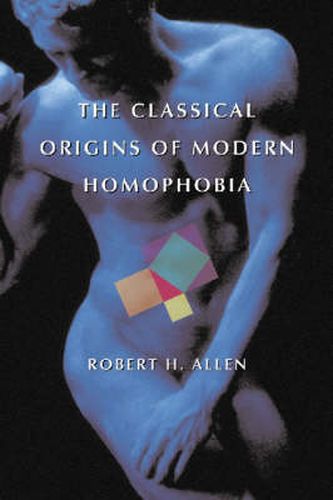Readings Newsletter
Become a Readings Member to make your shopping experience even easier.
Sign in or sign up for free!
You’re not far away from qualifying for FREE standard shipping within Australia
You’ve qualified for FREE standard shipping within Australia
The cart is loading…






This title is printed to order. This book may have been self-published. If so, we cannot guarantee the quality of the content. In the main most books will have gone through the editing process however some may not. We therefore suggest that you be aware of this before ordering this book. If in doubt check either the author or publisher’s details as we are unable to accept any returns unless they are faulty. Please contact us if you have any questions.
From government to literature to architecture, few fields in western culture are untouched by the influence of Ancient Greece and Rome. Even mores that may seem exclusively modern often have roots in the classical past. This book takes an in-depth look at the ancient roots of homophobia, including its Pythagorean origins and its eventual spread throughout the Roman Empire and, consequently, the rest of the world. Originally, male homosexuality occupied something of an honorable position in ancient Greece. By the end of the Roman period several centuries later, this attitude had changed so radically that to be found guilty of homosexual actions was punishable by death. This work investigates how such a shift occurred and traces the various cultural forces that brought about almost universal homophobia throughout western societies. Beginning with the earliest documented instance of homophobia in the teachings of Pythagoras (who was surrounded by mystery even in ancient times), the author examines its proliferation through various disciplines, citing sources from political history, anthropology, religion, and psychology as well as the analysis of ancient texts. Through extensive historical research, he follows the concept from Greece to Macedonia and finally to Rome, examining relevant religious attitudes including those of Christianity and Judaism. Finally, he discusses the ways in which homophobia was solidified in the legal legacy of the Roman Empire. An extensive bibliography provides additional resources regarding classical influence on modern culture.
$9.00 standard shipping within Australia
FREE standard shipping within Australia for orders over $100.00
Express & International shipping calculated at checkout
This title is printed to order. This book may have been self-published. If so, we cannot guarantee the quality of the content. In the main most books will have gone through the editing process however some may not. We therefore suggest that you be aware of this before ordering this book. If in doubt check either the author or publisher’s details as we are unable to accept any returns unless they are faulty. Please contact us if you have any questions.
From government to literature to architecture, few fields in western culture are untouched by the influence of Ancient Greece and Rome. Even mores that may seem exclusively modern often have roots in the classical past. This book takes an in-depth look at the ancient roots of homophobia, including its Pythagorean origins and its eventual spread throughout the Roman Empire and, consequently, the rest of the world. Originally, male homosexuality occupied something of an honorable position in ancient Greece. By the end of the Roman period several centuries later, this attitude had changed so radically that to be found guilty of homosexual actions was punishable by death. This work investigates how such a shift occurred and traces the various cultural forces that brought about almost universal homophobia throughout western societies. Beginning with the earliest documented instance of homophobia in the teachings of Pythagoras (who was surrounded by mystery even in ancient times), the author examines its proliferation through various disciplines, citing sources from political history, anthropology, religion, and psychology as well as the analysis of ancient texts. Through extensive historical research, he follows the concept from Greece to Macedonia and finally to Rome, examining relevant religious attitudes including those of Christianity and Judaism. Finally, he discusses the ways in which homophobia was solidified in the legal legacy of the Roman Empire. An extensive bibliography provides additional resources regarding classical influence on modern culture.